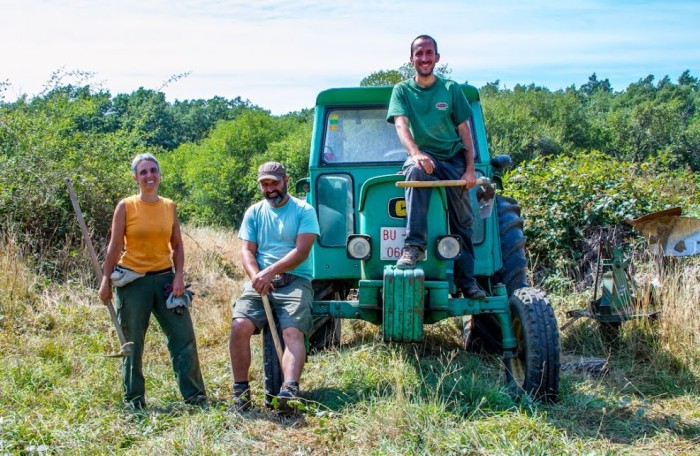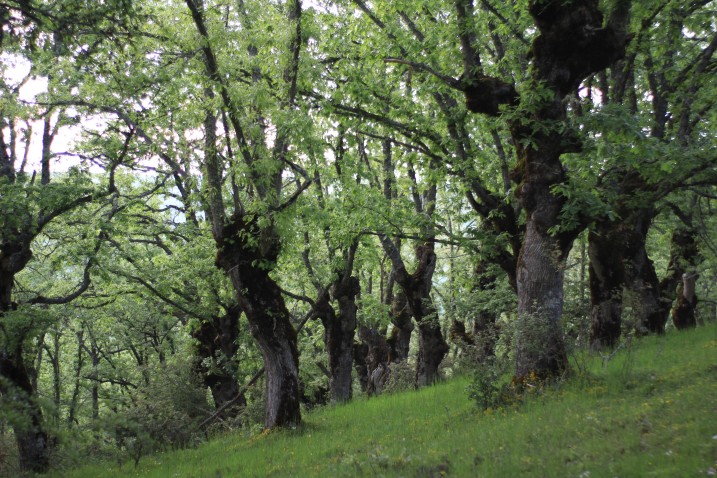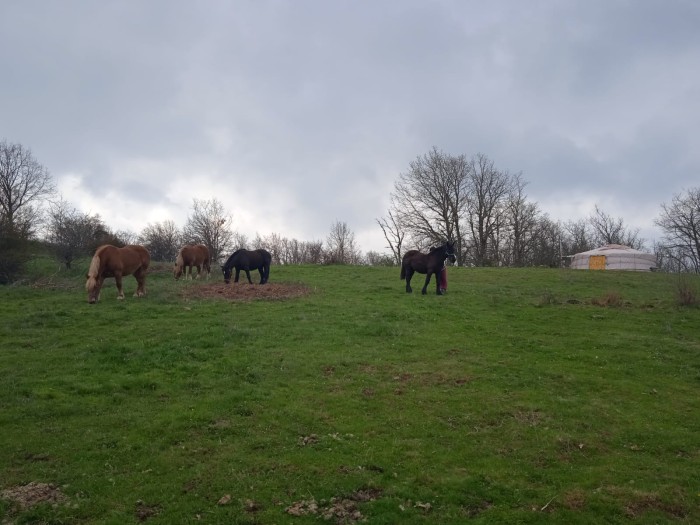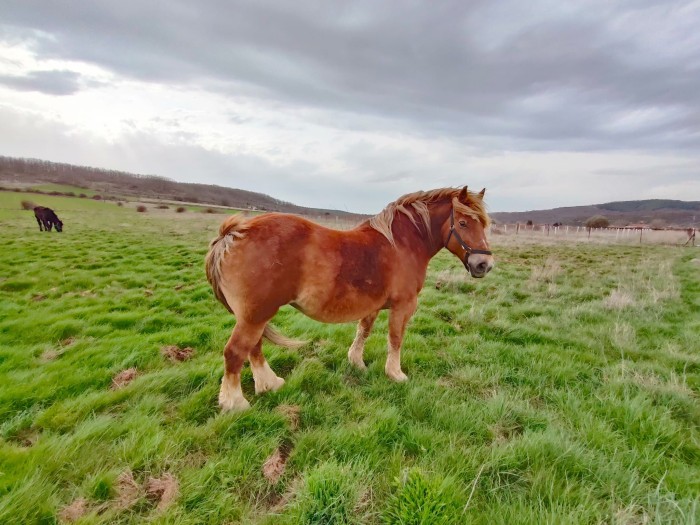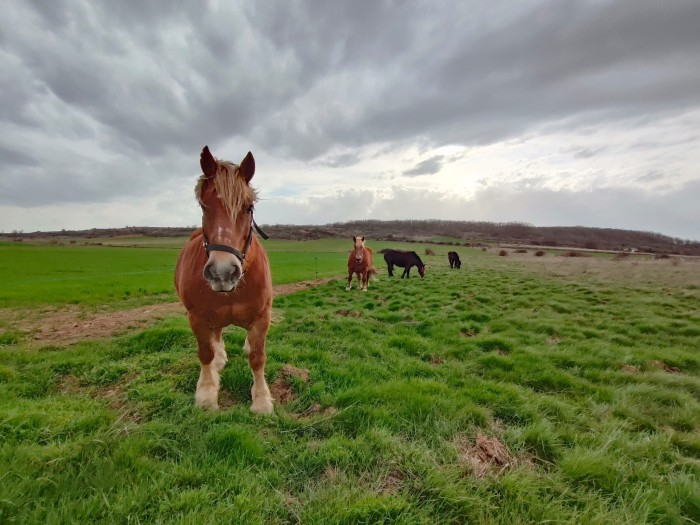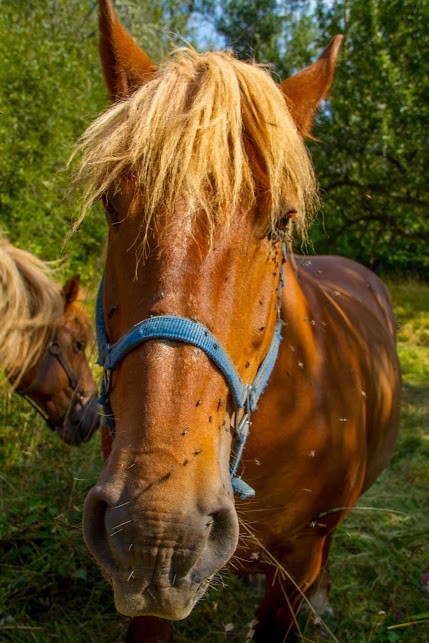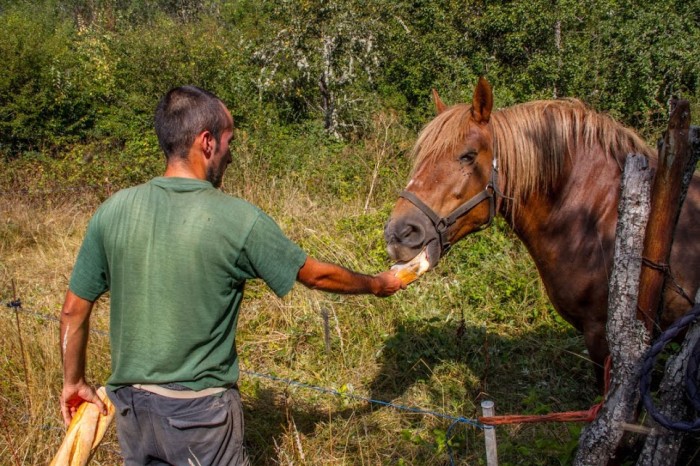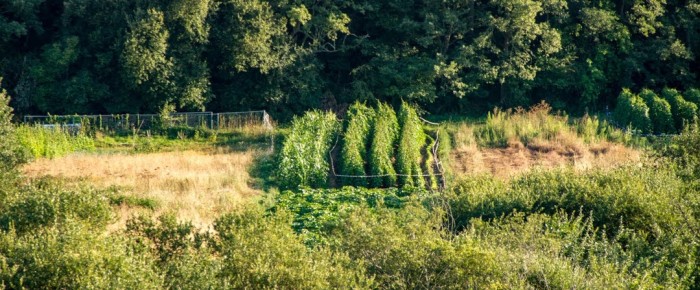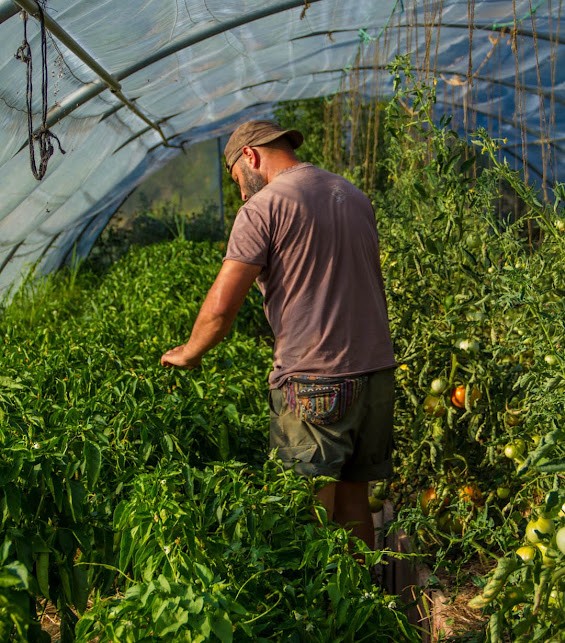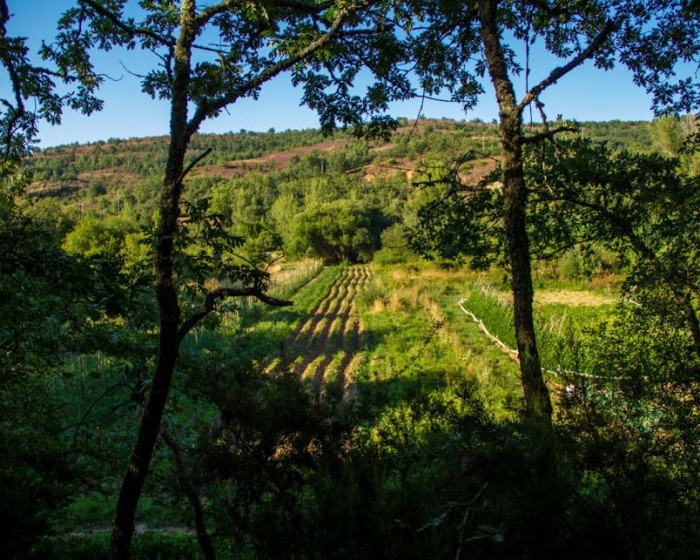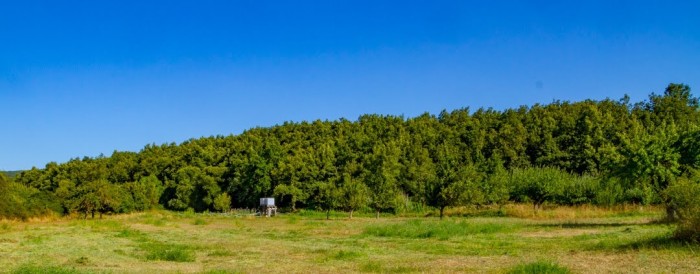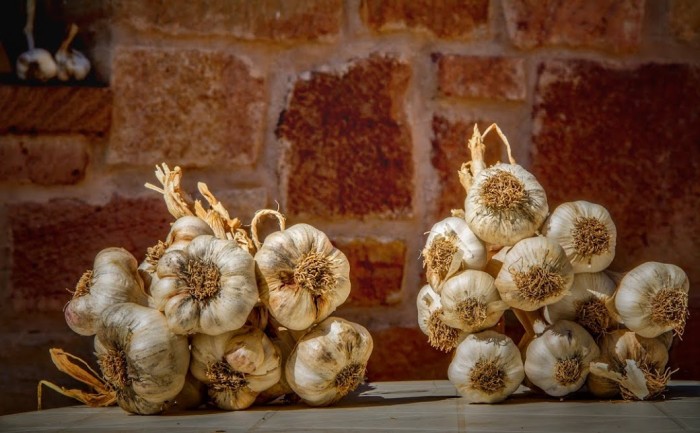El Puchero is an initiative for the close and conscious supply of food from the vegetable gardens of Villasur de Herreros (Burgos), where we establish a direct relationship between production and consumption, which facilitates a deep understanding between both parties, as well as issues related to production and its impact on the territory.
With El Puchero we aim to reconnect people with the land through food, so that consumption has a positive impact on the territory and its inhabitants. In this way we manage to give life to land that is currently in disuse, to obtain healthy and local food and to provide a livelihood for people who live in rural areas.
For more than 8 years we have been working and recovering the historical vegetable gardens of the village, using agro-ecological and traditional methods as much as possible, minimising the use of machinery to the essential. Currently we distribute weekly baskets with seasonal vegetables to more than 60 members. But we want to go one step further, we are promoting a new extensive livestock project: Entre Robles.
Main features and goals of the crowdfunding campaign
Villasur de Herreros is located at the foot of the Sierra de la Demanda, at an altitude of over 1000 metres, with a cold and harsh climate. Although it is a very fertile plain, it is not possible to grow crops all year round. On the other hand, it is a territory with an ancestral tradition of livestock farming. Countless generations of farming families have been shaping the landscape and thanks to this we can enjoy thousands of centenary oak trees and extensive pastures. From El Puchero we want to recover that vocation. Today, these oak trees and pastures are in grave danger. The abandonment of almost the entire territory and villages, the scarce number of grazing livestock and speculative threats make our territory very fragile.
We are launching this equine livestock project with the following objectives:
- To recover extensive and grazing livestock farming practices, which allow the conservation of the "dehesa" (traditional silvopastoral system), improve biodiversity and help to stop forest fires.
- To facilitate an increase in the young population in rural areas by incorporating them into jobs linked to traditional ways of life in the villages.
- To recover endangered horse breeds.
- To work for food sovereignty and territorial dignity: The right of peoples to decide how to produce their food and to do so with sufficient quality and quantity, according to their cultural patterns.
- To link work in the vegetable garden with the livestock project, putting an end to the divorce between livestock and agriculture that has encouraged industrial and modern production.
- To rebuild and to strengthen peasant culture, to recover the dignity of rural life and the sovereignty of the territory.
A herd of mares, living freely in the bush, is the livestock option best suited to our circumstances, as it allows a better combination with horticultural work and can help us to reduce the use of machinery. It also helps to improve pastures and allows the incorporation of future animals and herds.
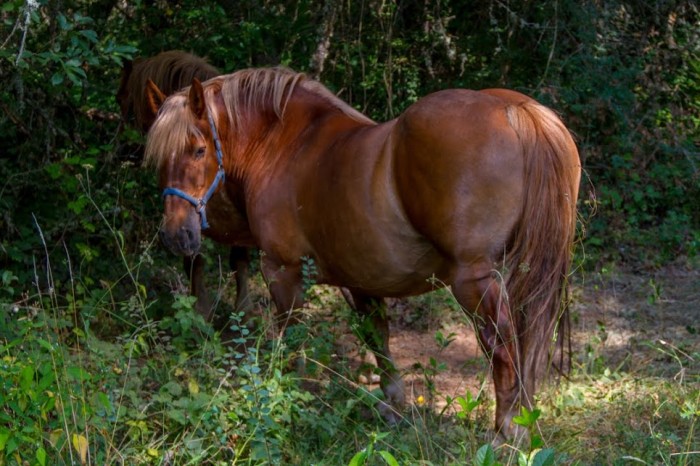
Why this is important
These years of work in the garden with El Puchero de Villasur and the contact with the members have been really positive. Different people, volunteers, neighbours and friends have been involved in the project, without whom this new project would not be possible, and we believe that the future of the rural world lies in the reencounter between livestock, agriculture and forestry. We believe that the future of the rural world lies in the reencounter between livestock farming, agriculture and forestry.
We address this project to all those who:
-Believe in agro-ecological and peasant models to recover a living rural world.
-Are sensitive to the environmental and human problems generated by macro-farms
-Believe that livestock farming is necessary to protect the land from corporate and industrial interests
-Defend the dignity of pastoralism and grazing livestock farming.
-Want to contribute to the recovery of our ancestral horse breeds.
-Know and love the world of the horse and the nature of mares in the wild.
-Recognise the diversity of uses and approaches that equine stockbreeding allows: human food, maintenance of pastures and forests, contribution to the fertility of agricultural soils, potential uses for transport and agricultural work.
All this with the utmost care for the animals and respect for their ethological patterns and the personality of each animal.
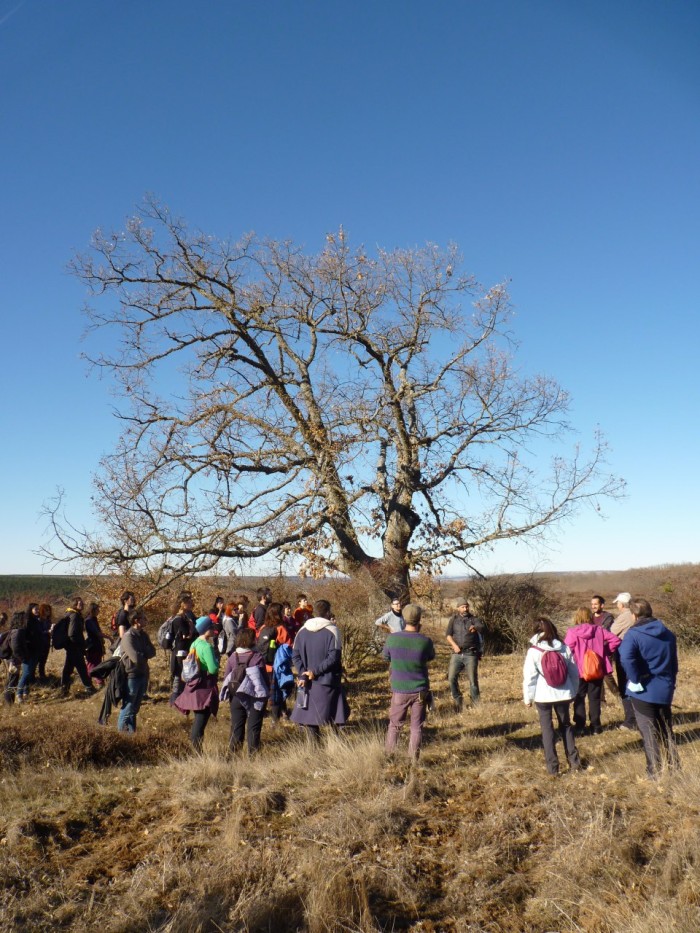
Team and experience
The team is made up of three people: Isa, Román and Víctor. We are three adults, but behind us we have families and three children. Previously, we participated in a cooperative project focused on organic bakery, founded in 2004. Then, for the last eight years we have been carrying out the work necessary to supply seasonal organic vegetables to families and groups in Burgos, a project we call El Puchero de Villasur.
We also carry out forestry work to supply firewood for homes, which helps to maintain the dehesas and use a nearby and sustainable energy resource.
We also participate in networks and initiatives of neighbourhood collaboration and defence of the territory against the threats that have been happening for decades according to the predominant interests of capital: unbridled urban planning, fracking, large infrastructures and motorways, macro wind farms and high voltage power lines, etc.
